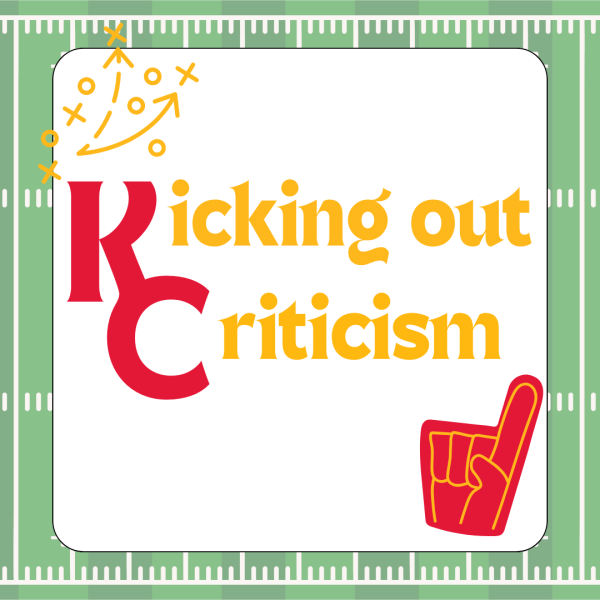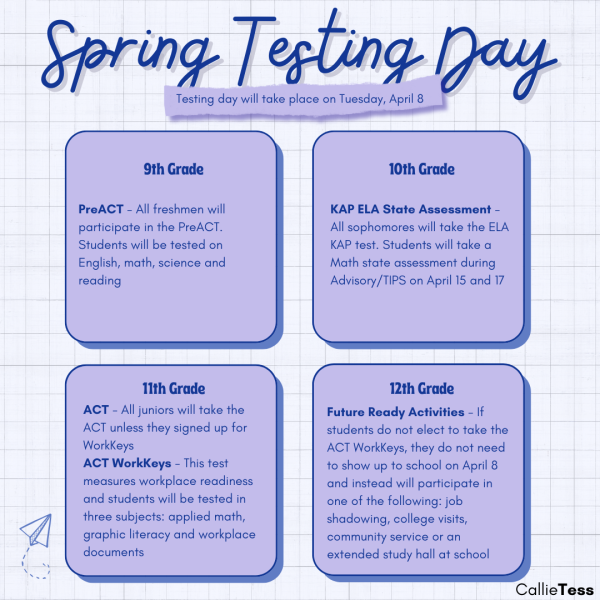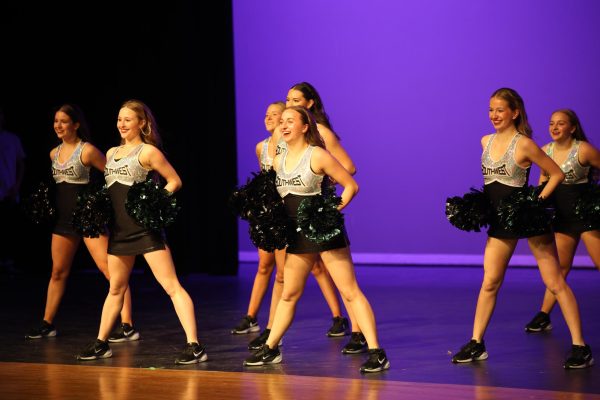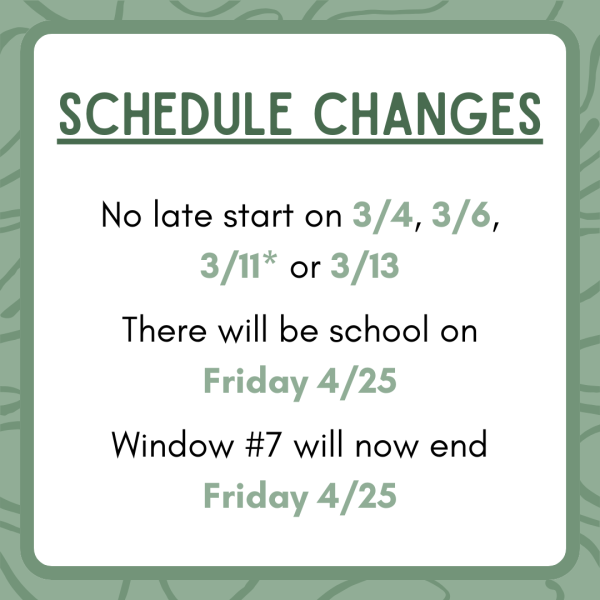Students are becoming accustomed to using racial slurs as common greetings
Racism is an issue that has been ongoing since the beginning of time. With incidents such as the Michael Brown shooting or the death of Freddie Gray, the media has picked up on racial issues and has addressed them as a “crisis.” Not that there’s an easy solution to this problem — removing the slurs completely from society is next to impossible. A start to fixing the problem is by realizing that racism is one — a big one.
Racial and offensive words have begun to be used as common greetings and are prevalent all over the world. They range from a conversation starter to deep rooted hatred. The younger generations are targeted for perpetuating racism through the casual use of racial slurs and offensive language. Using offensive slurs and language is ruining our generation’s reputation, and we need to be the ones to fix it before it impacts the next generation.
“It’s all ‘just words’ until you put a specific tone or connotation or circumstance to it, and then it’s not just words, then it’s life or death,” counselor Kristi Dixon said. “What’s just words in our zip code or in our building is so much more than that every place else. So when you leave our bubble of protection, all of a sudden you don’t know why someone is wanting to fight you.”
The recent events at the University of Missouri are prime examples of the impact of words. According to the Huffington Post, African-American student groups have complained of racial slurs and other slights on the overwhelmingly white, 35,000-student campus for months. Students criticized former president Tim Wolfe for not adequately responding to a spate of incidents where the student body president and several others encountered racial slurs.
Their frustrations flared during the homecoming parade on Oct. 10 when protesters blocked Wolfe’s car, and he refused to address the issue presented by students on the topic of racism. The student group issued its list of demands, which the Columbia Daily Tribune published; they demanded that the school adopt a mandatory racial-awareness program and hire more black faculty members.
“I understand the unhappiness of students, but I think this should have been handled in a much different way,” said alumna and University of Missouri freshman Abby Morrow. “Chanting ‘black power’ through a campus is not the right way to get equality. It’s very hard to see both sides of the situation, seeing as I have never been on the other side, but it has given this school a very negative image.”
All students will be impacted by the issue of racism — whether they were involved in the recent movement or not. Current and prospective students at the university are expected to take a mandatory racial-awareness program from here on out. Students will be ineligible to enroll in classes without successfully completing this training. According to CNN, Mizzou Chancellor R. Bowen Loftin said this training will inform students and faculty about the diversity of the campus and the organizations present on campus and also make people conscious of how to be inclusive in their words and behaviors.
“People will always have their opinions, and a mandatory program isn’t going to change that,” Morrow said. “There are people everywhere who still have feelings of racism, but the majority of Mizzou’s campus is not racist, which makes it hard to understand why all of the students would have to complete mandatory racial-awareness program.”
These situations occur everywhere, not just at local universities. Racial slurs and word choice have impacted people all over. Our generation in specific is being called out for not using them intelligently.
“I’m always frustrated by stereotypes of this generation, and I think that’s because I know this generation and I know you’re good people, so when somebody says, ‘Today’s youth…,’ I’m ready to argue it,” Dixon said. “They don’t know that these young people are changing the world, but it’s the language this generation uses that gives evidence and support to the people who try to put this generation down.”
Despite the increased efforts by the Diversity Club and Gay-Straight Alliance to spread awareness of racism and discrimination, these issues are still prominent within the school. Dixon said students frequently visit the counseling office about discriminatory issues.
“Some of the common greetings I hear in the halls of this school are bitch, whore, slut and the ‘N’ word,” Dixon said. “I hear a lot of words that to the casual passerby would be like, ‘What is happening?’ and those are the ones that concern me. In specific, I hear the ‘N’ word — it flies fast and furious in our hallways.”
They’re everywhere, not just prevalent in the hallways of a high school — they’re in music and all over the internet. In this generation, the word is tossed around without thought — it’s no more impactful than a comma. We’re so exposed to these words we hardly recognize it; therefore, we refuse to see it as an issue.
“I think [the use of these words are] the social norm because pop culture is a big influence,” Dixon said. “It’s in our music; it’s in our videos and our stories. Teenagers are consumers of popular culture, so it comes up, and when it’s so pervasive and you hear it all the time, you start to think it’s normal. And it’s not until somebody challenges you to think just a little bit differently and a little bit deeper before you start to think, ‘Maybe it’s not OK.’”
The pressing statement in this generation still remains — “but I didn’t mean it.”
“I don’t think older generations should be concerned about how we communicate — that’s just how we talk,” senior Alex Henke said. “The older generation probably had their own slang and did their thing when they were growing up. It’s just our generation. It’s who we are.”
Not all students refer to it as a generational fixation, but instead a larger issue which deems more attention.
“This reflects poorly on our generation because those words should not be taken lightly,” senior Shayna Byers said. “It’s sad that our generation tries to put a positive connotation on such terrible words. Especially because I’m an African-American, most students don’t realize that I hear them saying those words even when they don’t think I’m listening. People of this generation are claiming that since the African-American students are sticking up for themselves, they’re being ‘dramatic’ and need to ‘get over it,’ little do they know how hard it is to speak up.”
There needs to be a change in the attitude this generation has toward offensive language. Yes, they’re just words, but they have a very strong meaning behind them. It’s this generation’s job to stay educated about origins behind the words we’re saying and keep in mind once we say them, there’s no going back.
“I think we could start to solve this issue by being educated and knowing what the word means and where it came from, and when someone tells you it’s hurtful, believe them,” Dixon said. “You don’t have to challenge them. If someone says, ‘Hey don’t call me that,’ respond, ‘OK.’ Don’t think that you have to qualify or quantify or explain what you said. Just understand that what you said is unwanted.”
The use of racial slurs has been ongoing for many generations. Although some may think the older generation doesn’t understand the youth’s language, they also forget that older generations have lived through racially divided times and can be just as offended by these words as we are now.
“[The diction] hasn’t differed from my generation unfortunately at all,” Dixon said. “I went to see ‘Straight Outta Compton,’ and for me, it wasn’t a movie as much as it was a memory. Gangster rap became this thing, and then it was an expression of hip-hop and ‘it’s art’ but it’s also really hurtful and we’re teaching all these wrong messages. I feel like every generation has their own version of this same struggle, but my generation’s struggle hasn’t changed a whole lot — which is very unfortunate.”
The n-word is not an expression for art. It is not a greeting to use toward a friend you see in the hallway. The connotation will not change. Instead of ignoring that it’s an issue or using the excuse “it’s just a word,” we need to fix the problem. One step in the right direction to solving this ongoing issue is by understanding that using these words, although not necessarily intended to, can hurt someone in a larger way than one could ever imagine.
“I think some people have said there’s an effort to reclaim these words and to take the power away from them, and I think sometimes this gets used as an excuse,” Dixon said. “It’s not necessarily that you are taking the power away from it — it’s that you got caught saying something you probably shouldn’t have said and now you’re trying to justify it with, ‘Well, it’s just words.’ My take on it is it’s just words until you’re the recipient and it’s just words until the tone of how it’s said on Tuesday is slightly different than how it was said on Monday.”












